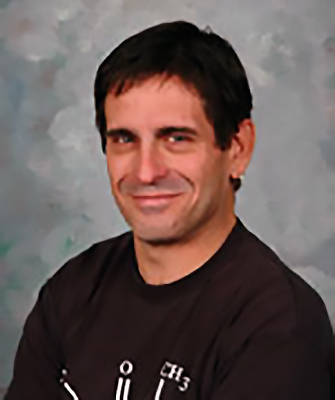
 Dr. William Diehl-Jones is an associate professor of nursing with AU’s Faculty of Health Disciplines, and sits on the research committee for the children’s Hospital Research Institute of Manitoba. Recently, he took time out of his busy schedule to do this two-part interview for The Voice Magazine by Marie Well. You can find the first part here.
Dr. William Diehl-Jones is an associate professor of nursing with AU’s Faculty of Health Disciplines, and sits on the research committee for the children’s Hospital Research Institute of Manitoba. Recently, he took time out of his busy schedule to do this two-part interview for The Voice Magazine by Marie Well. You can find the first part here.
Marie: What do you purport to be the role of technology and multimedia in online environments? How do they aid or complicate online learning?
William: Technology and multimedia, if used for its own sake, can needlessly complicate learning by adding an extra barrier between the instructor and the student. One always has to acknowledge that. On the other hand, technology can have several advantages. I think it can improve your teaching by forcing on the instructor a more deliberate and thoughtful approach. You really have to think more about what you are going to communicate and how. The multimedia environment also has some great pluses, in that you can include so many different other types of learning modalities as well as allowing you to bring into your virtual classroom the wealth of on-line resources.
One educational tool that I like to incorporate within the online environment are screen casts. Basically, with the platform I use, you can see a little picture of me in the upper corner–writing and talking about a given topic; this brings together visual and auditory cues for learning. As a teacher, I think its important to generate new information but I think it is also important to make use of the plethora of existing resources in the on-line world.
Marie: What is your particular philosophy on student evaluation?
William: It has to be immediate. It has to be constructive. It has to help them focus on the learning objectives. You need clear learning objectives, and the evaluation should help the student obtain those objectives.
The evaluation has to also speak to the students’ particular strengths. In clinical programs, students come to the table with pre-existing knowledge and skills. It’s important to acknowledge that. At the end of the day, however, in a clinical program, there is a set of standards that have to be met, otherwise, you are not safe to practice. The evaluation has to be clear and direct.
Marie: What pedagogical standpoint is most reflective of your way of teaching?
William: I am not sure I have a specific philosophy, but I’ll say that the standpoint that I try to adhere to is that you need to give learners the tools they need to learn the material that they want to learn. Two sort of approaches I employ are case-based and problem-based learning.
What we do is we introduce a hypothetical patient. We give them a medical history, a chief complaint, some social history or context, and a medication list, in a ?gradual reveal? format. We present physical exam data, including vital signs, and perhaps a few lab test results. We also ask them what other tests they might order. For example, if a CBC differential is ordered, what might you expect to find?
That sort of approach is challenging to do, but I think It’s best for the kind of learners that I teach because these are all clinicians and That’s the way they’ve got to think in practice.
Marie: What technological shifts would you like to see online education take in the future?
William: I would like to see increased bandwidth, and a shift to make it as synchronous as possible. I am working on a virtual auditorium for my new courses. I will be pushing our Adobe Connect to include as many students as possible, in a structured format, trying to enable students to be able to hear and see their instructor online, and enabling them to interact in real time.
Now, the challenge is that we have students all over the country in different time zones. They choose AU because it offers flexibility, so you can’t say “You will meet every Wednesday at three for your online class.” At AU, we have a very high percentage of students who are working and supporting families. So, you have to offer choice.
Marie: What is your view on social media in the online learning environment?
William: It’s a complicated relationship. I don’t think it always lives up to the hype. What I mean by that is social media has been touted as being a terrific tool, and many people have indeed successfully used it in the on-line learning environment, but it can be overwhelming for some students. It can also be very biased, and this is a problem when delivering content-heavy courses. With that said, I think we have to adapt and consider how best to incorporate it, given that it is so widely used. It will, however, take a great deal of thought to successfully harness it as an educational tool.